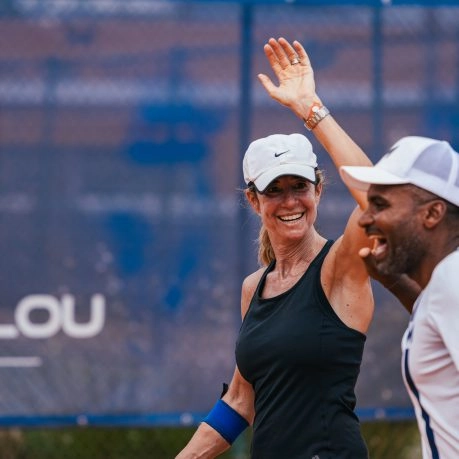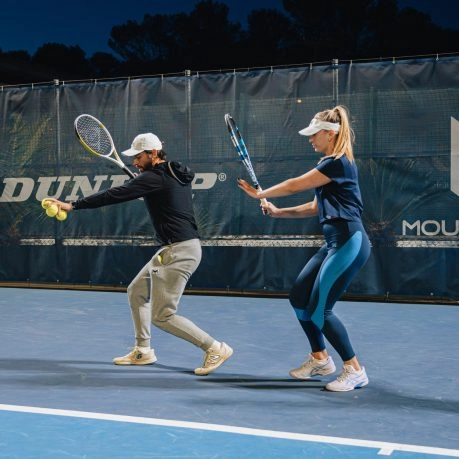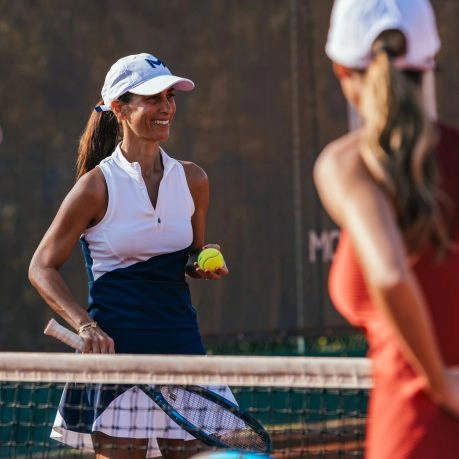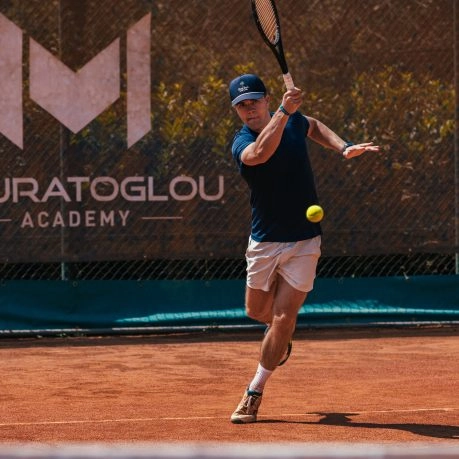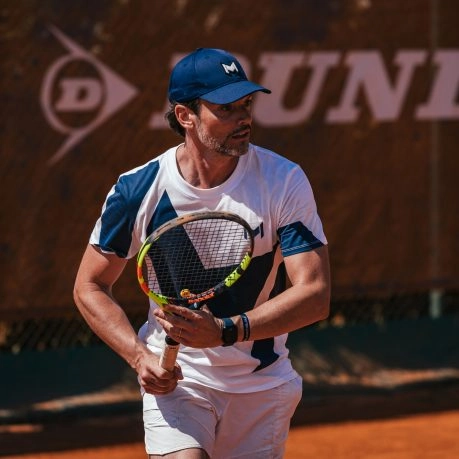
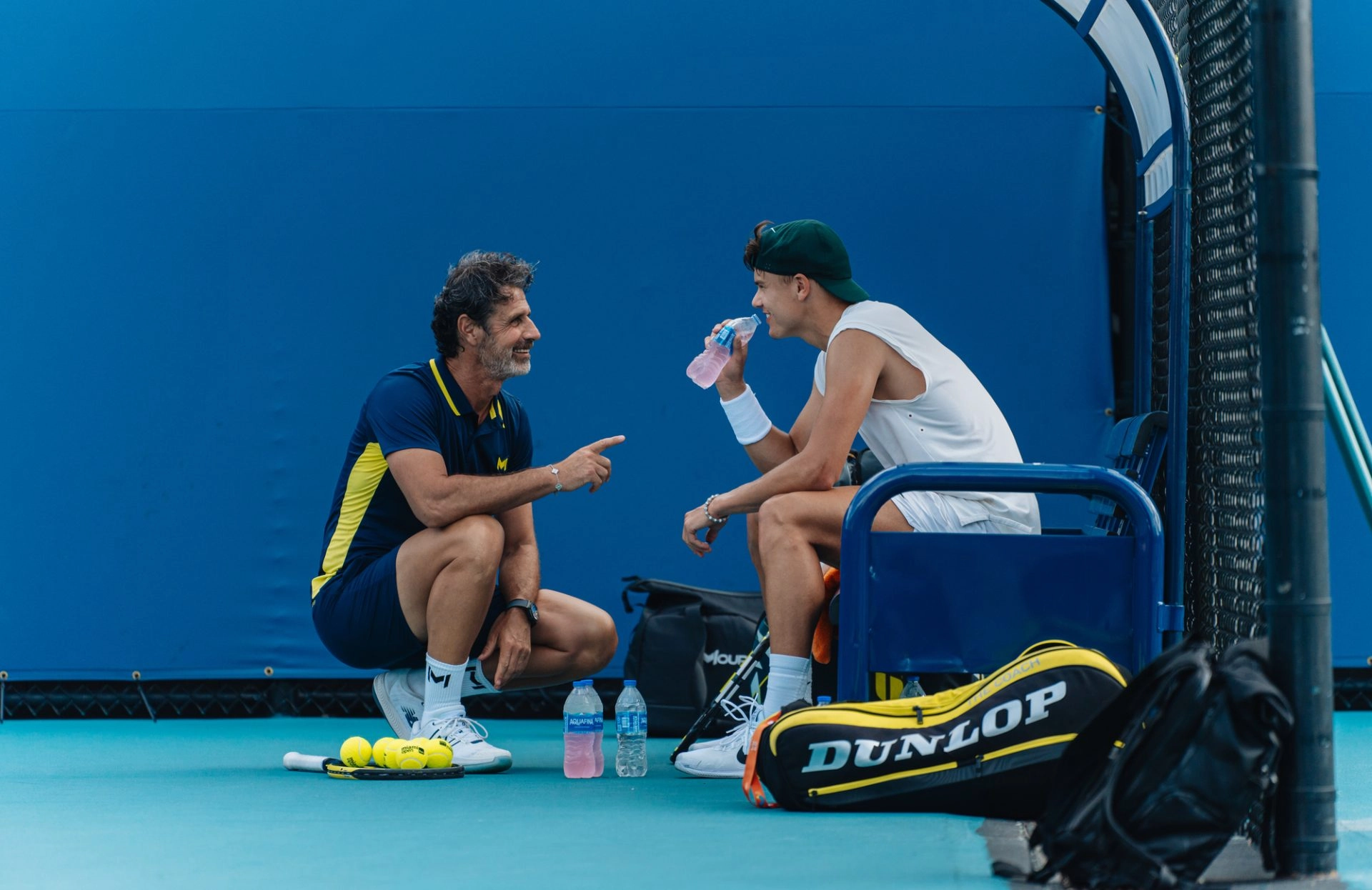
Improve your tennis performance with the help of a mental coach
Académie Mouratoglou, Biot, Côte d'Azur, France
Tennis is one of the most complete sports. It requires both physical and mental resources. To make rapid progress in this discipline, coaching with a mental trainer is often essential. It helps to manage stressful moments, improve concentration and build resilience on the court. At the Mouratoglou Academy, mental preparation is an integral part of the programmes to ensure that players develop to their full potential. Players are increasingly turning to mental trainers to help them improve all aspects of their game. But how does the mind play such a crucial role in tennis and how can specific coaching make a difference?
Why do tennis pros use specialist coaches?
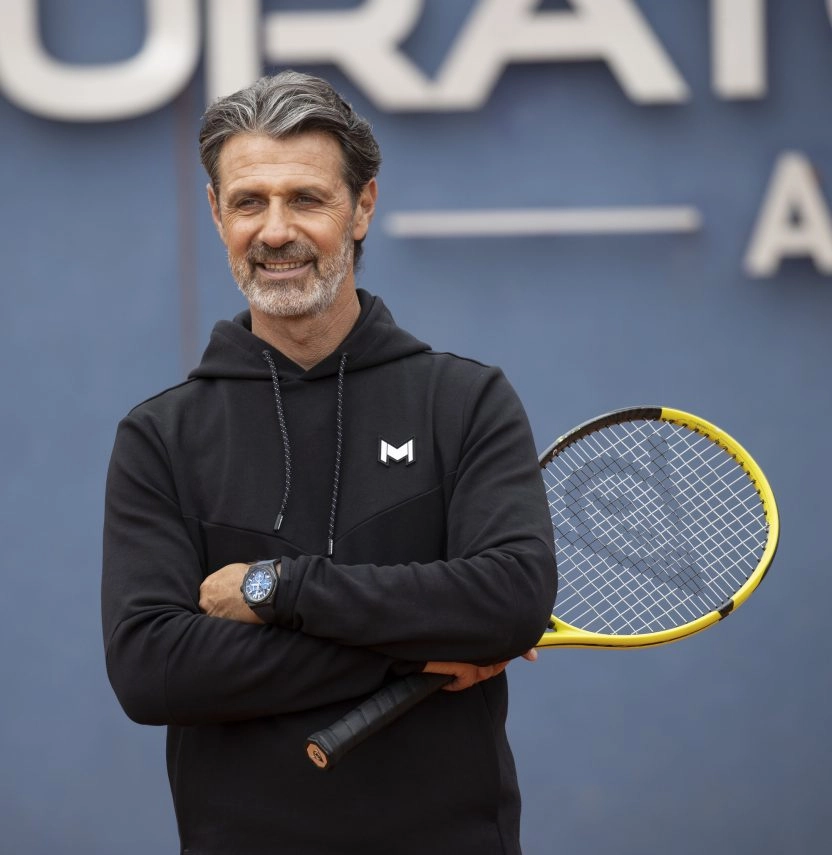
Tennis is unique among sports, not least because of the isolation of players during matches. Once on the court, the player is alone to make his own decisions. Unlike other sports where the coach can intervene live, tennis demands total autonomy. This solitude on the court highlights the importance of mental preparation. By offering mental coaching in addition to all our courses, the Mouratoglou Academy strives to strengthen athletes’ minds while perfecting their physique and technique. To face the challenges of this sport, it is essential to prepare not only your body, but also your mind.
Tennis coaching for professionals, coupled with a sound psychological approach, offers a number of advantages:
- Better stress management: Tense situations are commonplace in competition. Keeping your cool and calm will help you play better tennis.
- Greater concentration: Every point counts. A mental coach helps you stay focused from start to finish, avoiding fluctuations in performance.
- Resilience in the face of setbacks : Tennis, like any sport, is punctuated by ups and downs. Learning to bounce back from setbacks is crucial to maintaining a high level of performance.
The coach, a key player in coaching adult tennis pros
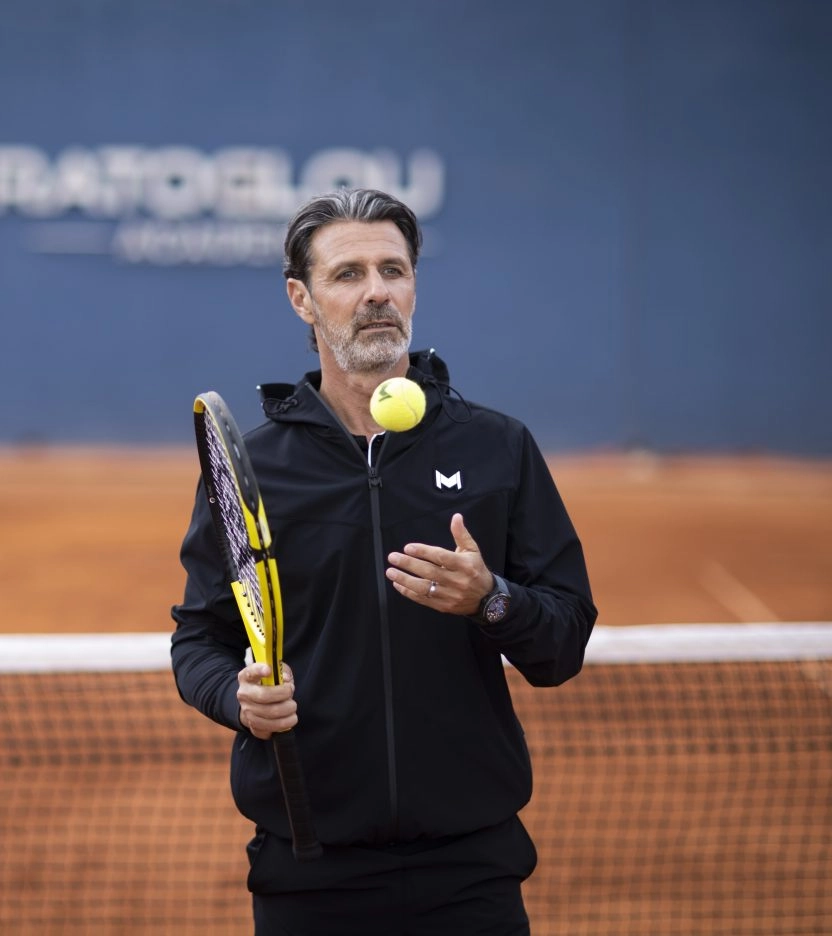
In tennis coaching for adult pros, the coach plays a central role. He not only prepares the player physically, but also provides moral support. In the run-up to the season, he sets up a preparation programme tailored to the specific needs of the student. This programme often includes physical and mental exercises designed to improve concentration, emotional management and decision-making under pressure.
A good coach knows how to motivate his player during difficult moments. He is able to turn a poor performance into a constructive lesson, enabling the player to come back stronger. But more than that, he is able to reveal his pupil’s hidden potential, helping him to achieve his goals. After an intensive coaching session, take advantage of the Mouratoglou Resort ‘s modern facilities and top-of-the-range services to optimise your recovery.
The essential qualities of a good tennis mental coach include :
- Pedagogy: Knowing how to explain mental strategies simply and effectively.
- Passion: A coach who is passionate about his sport transmits this positive energy to his players.
- Experience: Most mental trainers are former players who understand the challenges of the professional circuit.
How can you improve your tennis mentality?
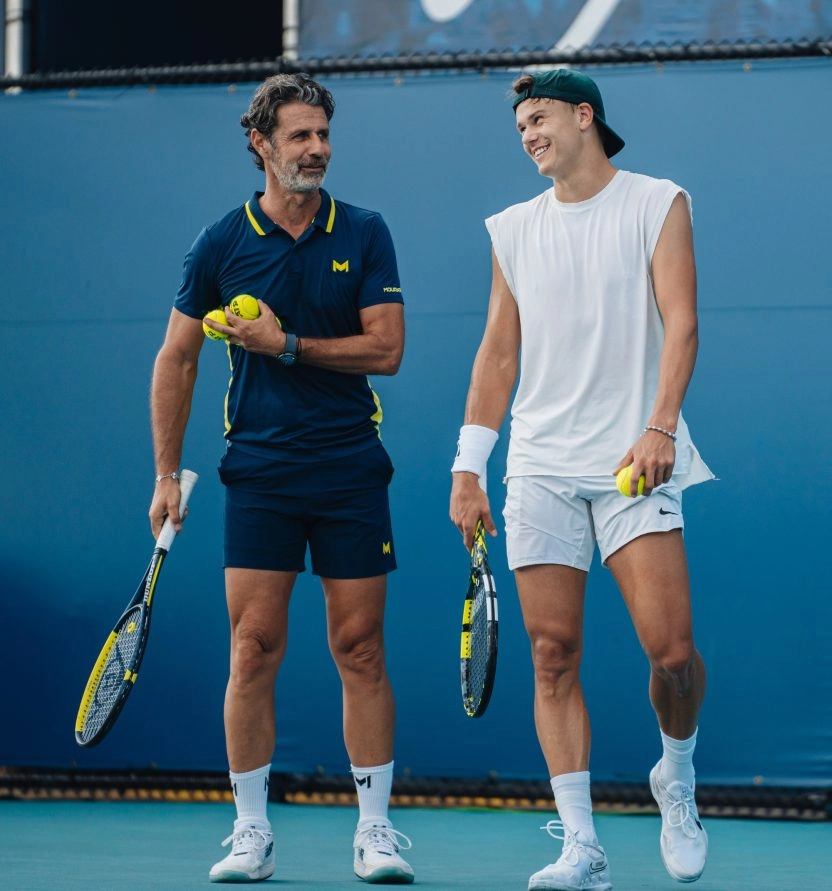
Improving your focus in tennis is a process that requires regularity and targeted work. Here are some essential strategies for strengthening your focus on court:
- Visualisation: This involves imagining yourself hitting a particular shot before you actually do it. This technique is commonly used by professional players to boost their self-confidence.
- Controlled breathing: Knowing how to breathe correctly helps you to manage your emotions and stay focused during the critical moments of a match.
- Positive reinforcement: Repeating positive phrases to yourself during a match helps you to avoid sinking into frustration after losing a point.
- Managing expectations: It’s important to set yourself achievable short- and long-term goals so that you don’t feel overwhelmed by what’s at stake.
- Pre-match routines : Having a stable routine before a match puts you in the best possible mental condition before you take to the court.
Why is tennis so mentally tough?
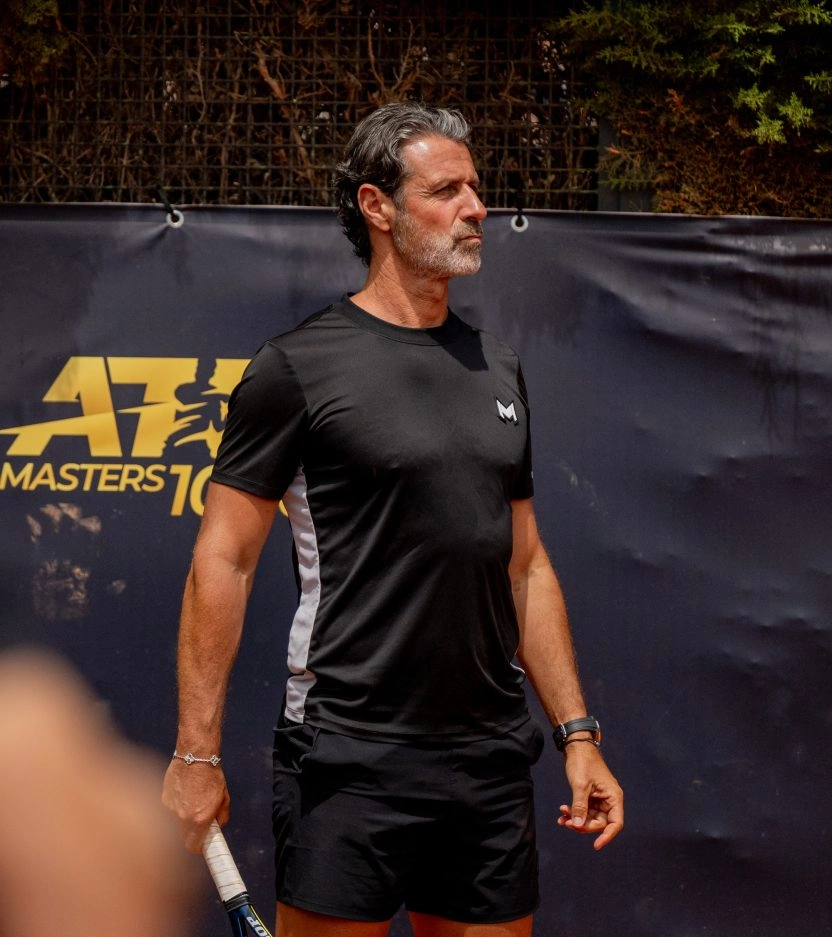
In psychological terms, tennis is one of the most difficult sports. There are several reasons for this:
- Isolation on the court: As mentioned above, once on the court, the player is alone. They don’t have the opportunity to receive live advice, which adds to the pressure.
- The unpredictability of the matches: Each rally can take a different turn, and a player can find himself behind even after dominating most of the match.
- The length of the matches: Tennis matches, particularly in the Grand Slam tournaments, can last several hours. This mental stamina is put to the test.
- The number of points lost: In other sports, a mistake can be quickly forgotten. But in tennis, every point lost is visible and has a direct impact on the score, which can affect a player’s morale.
These challenges require a solid psychological approach, and this is where the intervention of a mental coach proves crucial.
How do you manage stress in tennis?

Stress is inevitable in a sport as demanding as tennis. But you can manage it effectively with a few simple tips:
- Learn to put mistakes into perspective : Rather than focusing on a mistake, it’s important to stay focused on the next point.
- Relax: Meditation and breathing exercises are excellent for reducing stress.
- Set intermediate goals: Rather than thinking about the match as a whole, focus on a specific goal such as winning the next game or making a certain shot.
- Develop mental routines: Certain routines, such as wiping yourself with a towel after each point, can help you refocus and reduce the impact of stress.
A coach can teach you these techniques and help you apply them during matches.
Physical and mental preparation for tennis

Success in tennis is based on a perfect balance between the physical and the mental. A player may have an impressive physique, but without the right mental preparation, he won’t be able to handle stressful situations on court. Similarly, a mind of steel won’t be enough if the physical condition doesn’t keep up. That’s why it’s essential to combine these two aspects in a coaching programme.
Here are some key elements of a good physical and mental preparation programme for tennis:
- Cardiovascular exercises to improve endurance on the court.
- Work on concentration through mindfulness exercises.
- Stretching and muscle strengthening to prevent injury.
- Mental coaching sessions to manage emotions and boost self-confidence.
The benefits of personalised coaching
A personalised coaching programme allows sessions to be tailored to the specific needs of the player. This may include intensive work on certain technical aspects, mental preparation sessions to improve stress management, or advice on nutrition and recovery.
To sum up:
- A good tennis mental coach is essential for maximising mental and physical performance.
- Mental preparation includes techniques such as visualisation, controlled breathing and emotional management.
- Tennis is a mentally demanding sport because of the isolation on court, the length of matches, and the direct impact of mistakes.
Whatever your level or age, the Mouratoglou Academy offers you the chance to immerse yourself in the world of top-level tennis, with top-class facilities and coaches certified in the Mouratoglou method. To get started, don’t hesitate to ask about the tennis courses available.
